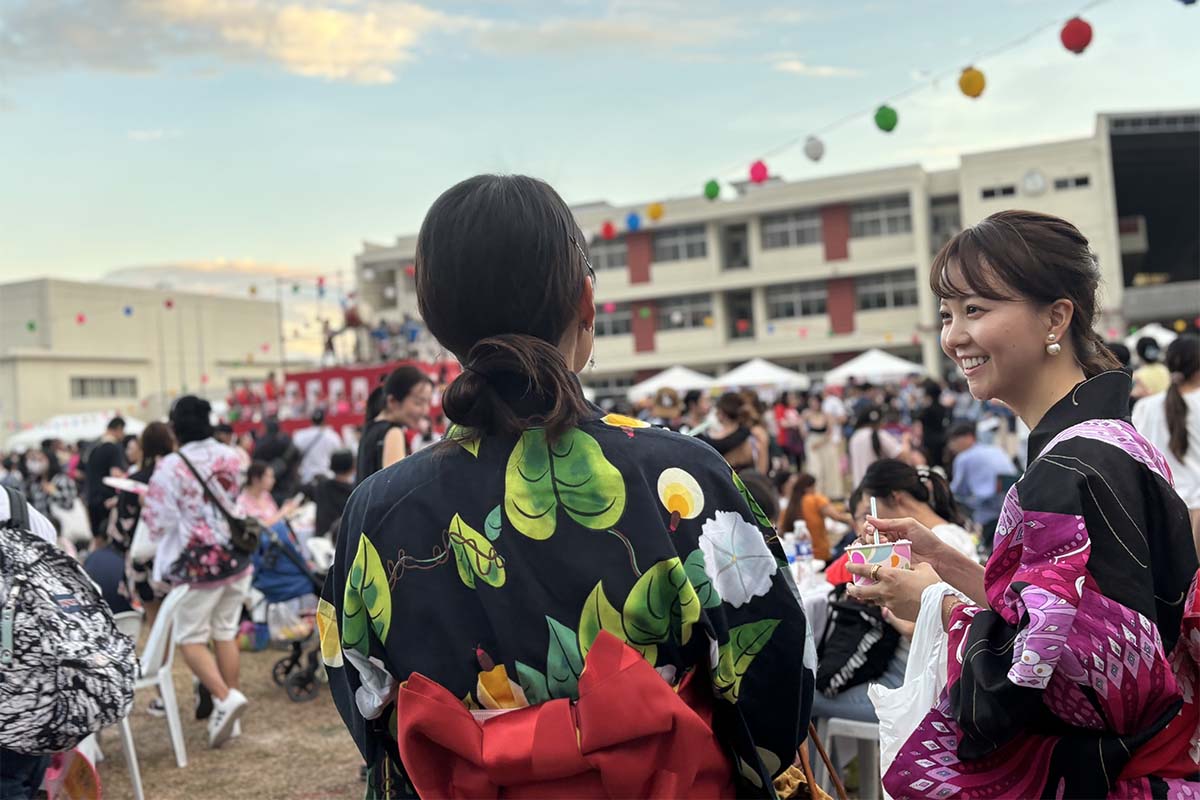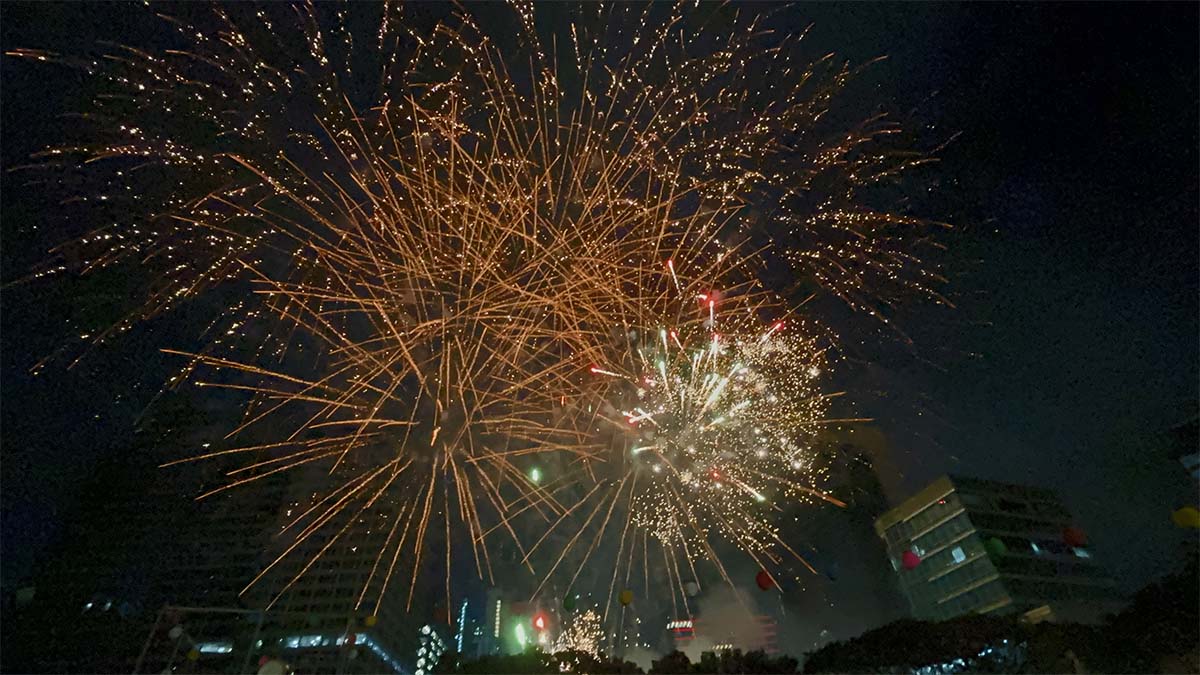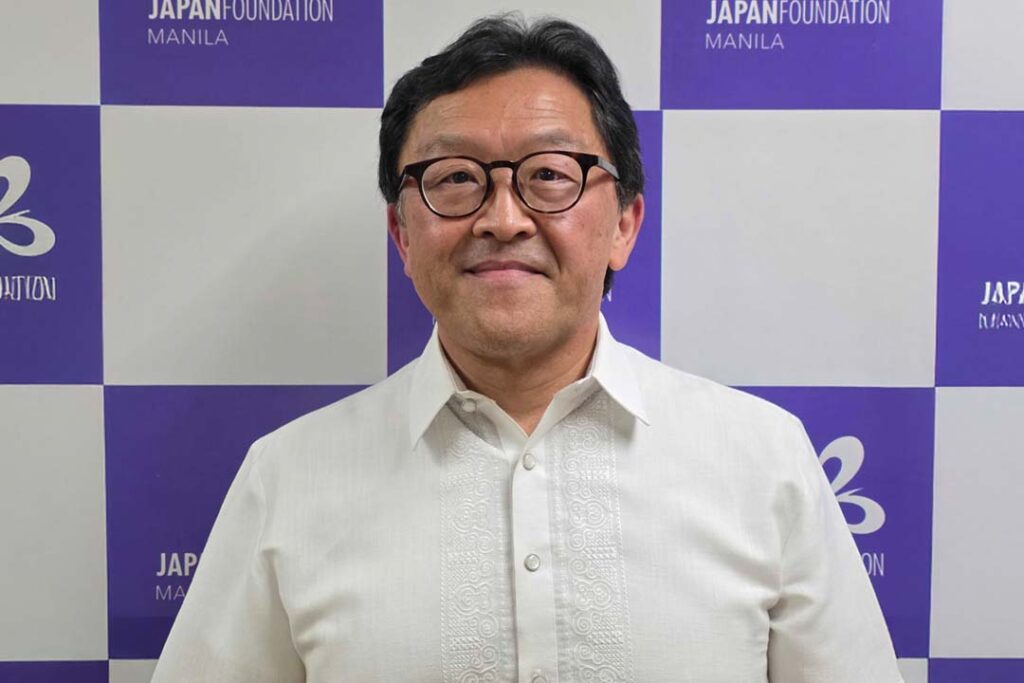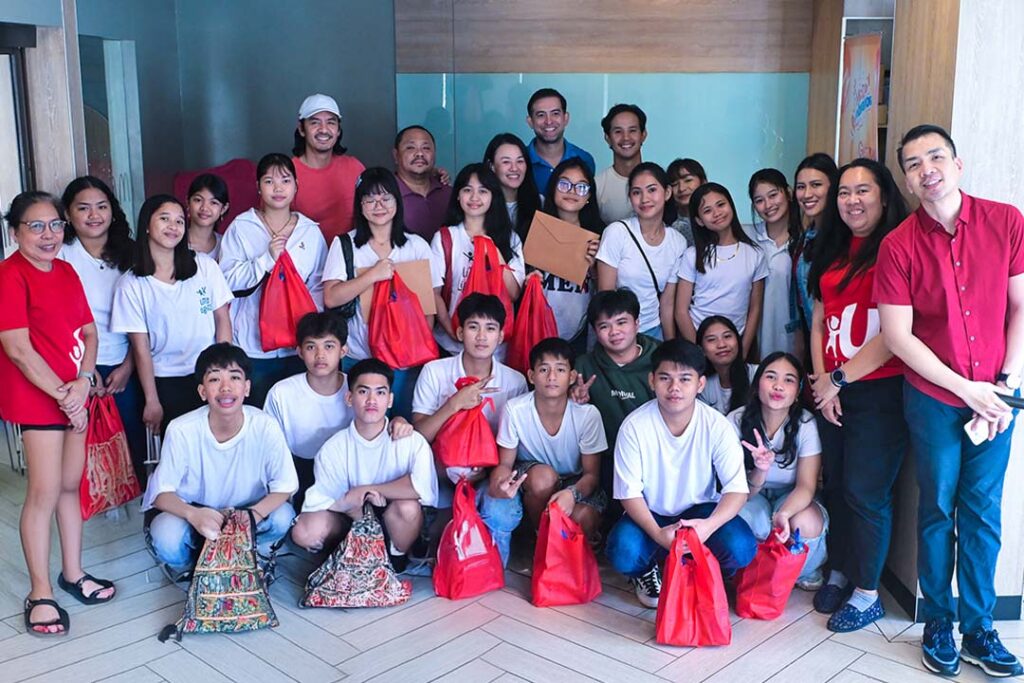Bon Odori is a traditional Japanese dance festival during the Obon season, honoring deceased ancestors with dances, traditional music and taiko drumming.


Organized by the Japanese Association Manila Inc. (JAMI), the Manila Japanese School hosted a vibrant Bon Odori Festival this March bringing together Filipinos and Japanese in a shared celebration of culture, music, food and dance.
For one evening, attendees dressed in colorful yukata, weaving through rows of yatai stalls offering popular Japanese street foods; the mix of sizzling, savory, and sweet scents filled the air as people enjoyed their meals on picnic mats under the warm glow of lanterns.
At the heart of the celebration was the Bon Odori dance, performed atop the yagura, a raised platform where participants moved in sync with traditional melodies. Once exclusive to the Japanese community in the Philippines, the festival is now open to the public, allowing more people to take part in and appreciate Japanese culture firsthand.
The night concluded with a dazzling hanabi (fireworks) display, lighting up the sky over Bonifacio Global City. More than just an event, the festival reflects the strong cultural ties between Japan and the Philippines, bringing people together through shared traditions and experiences.
Beyond cultural festivities, the Japanese community in the Philippines continues to thrive, contributing to various sectors, from business and education to cuisine and the arts. With a growing number of Japanese companies, restaurants, and institutions, the community plays a significant role in fostering mutual understanding and economic collaboration.
Events like Bon Odori not only celebrate heritage but also reinforce the long-standing presence and influence of Japan in the Philippines.


This celebration of cultural exchange comes at a significant time, as The Japan Times prepares to publish its Special Edition on the Philippines on June 7. Coinciding with the Philippines Pavilion Day at the World Expo in Osaka, the report will highlight the growing relationship between the two nations. Its Special Edition on the Philippines offers companies a valuable platform to showcase their role in this evolving partnership.
The Bon Odori Festival is a reminder that cultural traditions do more than preserve the past—it creates a space where people can connect, share experiences, and build lasting relationships.
The Bon Odori Festival is a reminder that cultural traditions do more than preserve the past—it creates a space where people can connect, share experiences, and build lasting relationships. Whether joining in the Bon Odori dance or simply enjoying a familiar meal in a different setting, these moments of cultural exchange strengthen the ties between nations in ways that extend far beyond the event itself.











